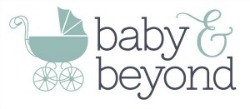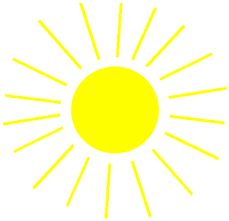Vitamin D The Sunshine Vitamin – What is it?
Vitamin D the sunshine vitamin helps our bodies use calcium to build and maintain strong bones and teeth. Recent research has also highlighted Vitamin D plays a role in supporting the development of our immune systems and preventing the onset of some auto immune disorders such as Multiple Sclerosis.
Vitamin D also plays a role in preventing health problems like, heart disease, diabetes, osteoporosis and thinning bones.
Sources of Vitamin D
Vitamin D is a fat-soluble vitamin, it is known as the ‘sunshine vitamin’ because our bodies can make it from the sun. When the skin is exposed to sunlight, the ultraviolet B (UVB) rays from the sun are used to make Vitamin D.
Our bodies naturally produce vitamin D when we’re outside in the sun. So, many baby’s and toddlers get enough vitamin D naturally from being outdoors during daily activities, such as walking, biking, or playing sports.
Vitamin D is available in small amounts in dietary sources such as oily fish (salmon, sardines) and some fortified sources. Breastfed babies get some Vitamin D via their mum’s milk. It is not possible to get all of our vitamin D requirements from diet alone.
Luckily, many foods are fortified (have vitamin D added), and supplements are available for kids who still need more vitamin D.
Vitamin D deficiency
Most people don’t get enough Vitamin D, especially in the winter time (this is one of the reasons we get more coughs and colds in the middle of winter).
Vitamin D deficiency is of particular concern for pregnant and breast feeding women. If a woman is Vitamin D deficient, her developing baby will be also. Vitamin D deficiency can also lead to pre-term birth.
Premature babies are at greater risk of Vitamin D deficiency.
Vitamin D deficiency in infants can lead to failure to thrive, rickets and increased susceptibility to respiratory infections such as bronchiolitis.
Ensuring Mums and bubs get adequate Vitamin D
For Pregnant and breast feeding women, supplementation is a recommended way of getting adequate vitamin D (2-4000 IU, recommended daily intake of Vitamin D). Your doctor can prescribe a vitamin D supplement that comes in drops.
Drops can either be:
- put on your nipple before your baby latches on
- given directly into your baby’s mouth using a dropper.
Exposing skin to the sun for 10-15 minutes per day (hands, face, arms), without sunscreen on (as this blocks the absorption of UVB). However, it’s not recommended to expose babies and children to the sun between 10 am 4 pm in the spring and summer.
UVB DOES NOT PASS THROUGH GLASS, SO SUNNING BABIES IN FRONT OF A WINDOW WILL NOT HELP
Who’s at Risk for Vitamin D Deficiency?
- People living where exposure to sunshine is limited.
- People with dark skin. The pigment, or melanin, in darker skin blocks the sun and vitamin D is not effectively produced.
- People with certain health conditions.
If you are concerned you and your child may be vitamin D deficient a quick chat to your doctor and prescribed supplementation is available if needed.
A blood test is available to check for deficiency, there will be a cost to you for this blood test.
This blog is part of March’s Network NZ Blog Tour. Head over to Jill Matthew who is painting it black! and continue on with the ‘colour’ blog tour.



